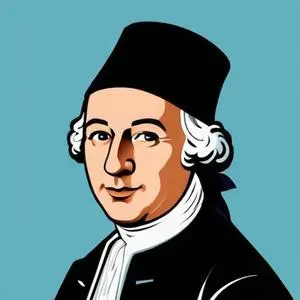
Pioneering mathematician and physicist who made immense contributions to fields like calculus, number theory, and optics, shaping the course of modern mathematics and physics.
Leonhard Euler, an 18th-century Swiss mathematician, physicist, astronomer, geographer, logician, and engineer, is widely regarded as one of the most prolific and influential mathematicians in history. His groundbreaking contributions to various fields, including graph theory, topology, analytic number theory, complex analysis, and infinitesimal calculus, have left an indelible mark on the development of modern mathematics.
Euler's remarkable career spanned over five decades, during which he published an astonishing 866 papers and books. His most notable works include:
Euler's contributions have had a profound impact on modern society. His work on calculus, optics, and astronomy has paved the way for numerous scientific discoveries and technological advancements. His influence can be seen in fields such as:
Euler was not only a brilliant mathematician but also a philosopher who believed in the importance of reason and evidence. He was a strong advocate for the scientific method and believed that mathematics could be used to understand the natural world.
Euler's life was marked by several significant events, including:
Euler's contemporaries and successors have praised his work, with many quoting him as a source of inspiration. Some notable quotes include:
Euler's legacy extends far beyond his own lifetime. He has inspired generations of mathematicians and scientists, and his work continues to influence modern research. The Euler Archive, a comprehensive online repository, is dedicated to digitizing and preserving his works.
Euler's contemporaries, including mathematicians such as Joseph-Louis Lagrange and Pierre-Simon Laplace, often sought his advice and input. His contributions to mathematics have been likened to those of Isaac Newton, and he is widely regarded as one of the greatest mathematicians of all time.
Euler was known for his kind and humble nature, often taking great care to help his students and colleagues. He was particularly close to his wife, Katharina, and raised 13 children with her.
Did you know that Euler:
Euler was a devout Christian who believed in using his talents for the greater good. He often donated his time and resources to charitable causes, including the education of underprivileged students.
Euler's remarkable life and work serve as a powerful inspiration to anyone pursuing a career in mathematics or science. His dedication, perseverance, and passion for learning have inspired generations of scholars and continue to motivate new generations of mathematicians and scientists.

Born in 1646
Developed calculus independently of Isaac Newton, and made major contributions to the fields of philosophy, politics, and history.
Born in 1736
Developed calculus, number theory, and celestial mechanics, making significant contributions to the fields of mathematics and astronomy.
Born in 1749
Developed nebular hypothesis of the origin of the solar system and formulated Laplace's equation, a fundamental concept in mathematics and physics. He's considered the founder of celestial mechanics.
Born in 1777
A pioneer in mathematics and physics, he made major contributions to number theory, algebra, and electromagnetism, shaping our understanding of the natural world.
Born in 1752
Developed the theory of elliptic integrals, and his work on number theory laid the foundation for modern cryptography.
Born in 1717
A French Enlightenment thinker who made significant contributions to mathematics, physics, and philosophy, particularly in the fields of fluid dynamics and the study of vibrating strings. He's also known for his work on the Encyclopedia, a comprehensive reference work that aimed to compile all knowledge of the time.
Born in 1629
A 17th-century polymath who made groundbreaking contributions to optics, probability theory, and astronomy, including the discovery of Saturn's rings and the largest moon, Titan.
Born in 1623
A 17th-century genius who made major contributions to mathematics, physics, and philosophy, inventing the mechanical calculator and developing the theory of probability. His writings also explored the human condition and faith.